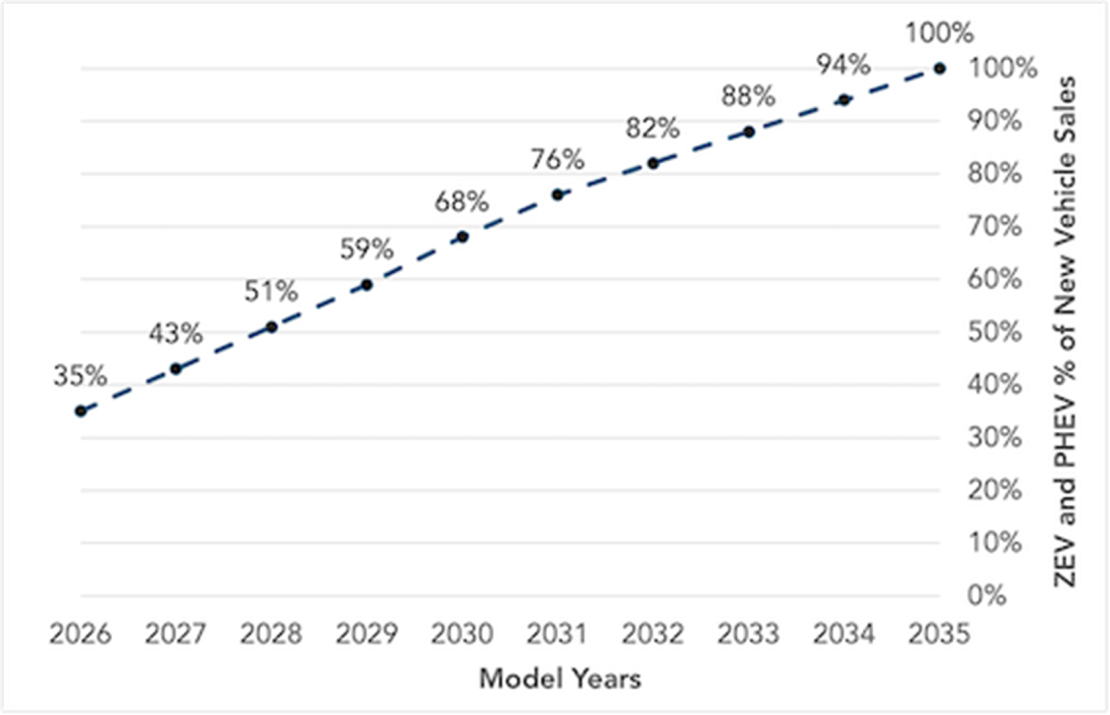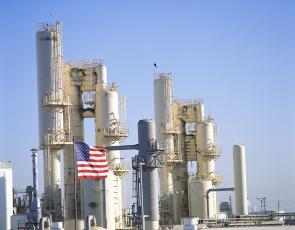California’s Advanced Clean Cars II regulation is in the news again and you might have some questions. Below is an overview of the California policy and whether or not EPA has to affirmatively grant California’s waiver requests. We take a closer look at the Congressional Review Act and ACCII here.
What is the California “ban?”
That terminology refers to California’s Advanced Clean Cars II (ACCII) regulation, a first-in-the-nation ban on sales of new gas, diesel and traditional hybrid passenger vehicles.
ACCII requires an increasing share of new vehicle sales to qualify as “zero emission” over model years (MY) 2026 to 2035 until only new zero emission vehicles (ZEVs) can be sold. A small share of plug-in hybrid vehicles (maximum 20%) will be allowed under the state’s ZEV definition.
What are the annual ZEV targets under ACCII?
ACCII requires each automaker selling vehicles in a “California state” to meet these yearly targets:
Which other states will follow ACCII?
There are a dozen states that will follow ACCII. Starting in MY 2026 (35% ZEV mandate) are California, Oregon, Washington, New York, Massachusetts and Vermont. Joining them in MY 2027 (43% mandate) are Colorado, New Jersey, Delaware, Rhode Island, New Mexico and Maryland.
Are any states on track to meet California’s targets?
Not a single state is “on track” to meet the targets, per the Alliance for Automotive Innovation. It’s worse when you consider individual automaker sales (pg. 16-17). As of 2023, ZEV sales for legacy automakers were just 13% in California (pg. 4). They are lower in every other state.
What happens if automakers can’t meet the annual ZEV sales targets?
Compliance isn’t optional. If automakers risk falling short of ACCII’s annual standards, they have two options: 1. Buy expensive credits from pure-play EV makers; or 2. Reduce sales of gas and traditional hybrid vehicles to inflate their ZEV sales percentage.
Doesn’t EPA have to grant California’s waiver requests?
No. In fact, EPA is required to deny requests if California’s rules fail certain CAA criteria, which ACCII does:
- ACCII is not essential to “meet compelling and extraordinary circumstances” in California. The state does not “need” to ban sales of new gas cars to address local pollution and smog.
- ACCII exceeds EPA’s own CAA authority. Simply put, EPA cannot ban conventional vehicles under the CAA, so California can’t either.
- The determinations underlying ACCII are textbook “arbitrary and capricious.” It is technologically infeasible. If implemented, it would not meaningfully address CO2 and would likely increase particulate pollution.
Read more on the CRA and California’s Advanced Clean Cars II here.
The American Fuel & Petrochemical Manufacturers (AFPM) is the leading trade association representing the makers of the fuels that keep us moving, the petrochemicals that are the essential building blocks for modern life, and the midstream companies that get our feedstocks and products where they need to go. We make the products that make life better, safer and more sustainable — we make progress.



